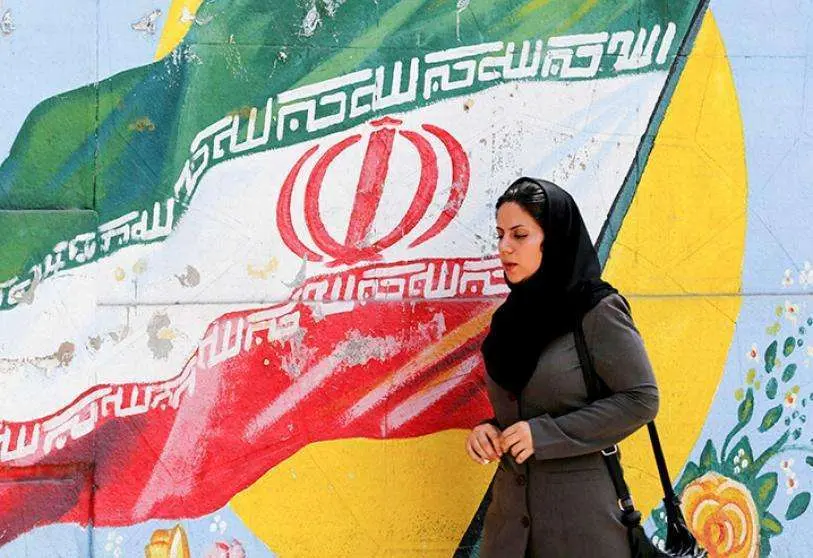Hundreds of women burn veils in new wave of protests in Iran

Demonstrations over the death of young Kurdish woman Mahsa Amini in Iran continue to erupt, plunging the country into an unprecedented climate of protest. So much so that even high-ranking Iranian officials have condemned Amini's murder and the aggressive action of the "morality police" at a time when society is more critical than ever of the compulsory wearing of the hijab.
In this vein, the president of the Shura Council, Mohamed Baqir Qalibaf, has declared that it is "necessary to investigate the behaviour of the morality police" to avoid situations similar to Amini's murder.
In addition, a report on the Islamic Republic of Iran's hijab-wearing policy based on surveys conducted by the Iranian Students' Survey Association between 2006 and 2014 and published by the Rouhani administration in 2018, noted that around 49.2% of the population believed that whether or not to wear the hijab was a personal matter that should not be made compulsory.
La muerte de #MahsaAmini .... cientos de mujeres iraníes se rebelen salen a las calles a protestar contra el régimen, dejando su cabello al aire e incluso gritando consignas como "Mujer, vida y libertad" pic.twitter.com/818u81LiUo
— ??PatiSole?? (@patisole) September 20, 2022
Tehran has also joined this new wave of protests, but it is in the area of Iranian Kurdistan, governed by Ismail Zari Kosha, where the most violent clashes have taken place. According to a statement issued by the Fars news agency, "five people were killed by gunfire" during the protests "in suspicious circumstances" as part of what it described as "an enemy plot".
According to Iranian analyst Daniel Bashandeh, for Atalayar "this crisis is also a reflection of three crises in Iran: economic, social and legitimacy. The latter, due to the uncertainty over what will happen after the supreme leader, whether there will be an internal power struggle led by the Pasdaran or not. All this in a regional context marked by Russia's gradual influence in the East and the nuclear deal in the air".
?? Se expanden las protestas por todo Irán ??
Ciudades en todo el país están presenciando movilizaciones en repulsa a la muerte de Mahsa Amini, así como contra la obligatoriedad del hiyab. Además de en Teherán y el Kurdistán, destacan las protestas en Sari, Mashdad y Kish. pic.twitter.com/hPIo2uqpQY— Descifrando la Guerra (@descifraguerra) September 20, 2022
As for the wearing of the hijab, he argues that "the regime is more permissive when it also reaches out to the West, but when it isolates itself, it tightens its policy. Most likely it will be gradual, quiet and permissive. But since the stakes are high, for example, there is talk of the health of the supreme leader and there is no successor, everything is up in the air".
However, this has not stopped hundreds of women from taking to the streets in Iran. In many of the videos released of these protests, some women can be seen demonstrating without the veil, some even cutting their hair as a symbol of protest. Other images show women chanting "Woman, Life, Freedom", the main slogan of Kurdish feminism, which advocates women's emancipation, as well as tearing up posters of Iran's supreme leader, Ali Khamenei, while shouting "death to the dictator".
1)
— Masih Alinejad ?️ (@AlinejadMasih) September 20, 2022
“ I removed my hijab in the street of Tehran where #MahsaAmini got arrested for inappropriate hijab & dared hijab police to arrest me”
Across Iran women removing their hijab in public in protest to the murder of Mahsa. #WalkingUnveiled is Punishable crime in Iran.#مهسا_امینی pic.twitter.com/0FB4aw4RSR
The scale of these protests has already become historic, not least because of their feminist character. The last mass demonstrations in the country took place during 2019, when Iranian citizens took to the streets to protest high petrol prices.
According to the Hengaw Organisation for Human Rights, 75 protesters were injured in the Kurdish region. It is for this reason that the demonstrations are being characterised as "flash protests", in which they try to form up and disperse quickly to avoid any confrontation with the Iranian police after the significant escalation of violence between civil society and security forces.
Despite this, many women during the protests have lit multiple bonfires where they have burned hijabs, in an act that has already been labelled as "revolutionary" as the wearing of the veil is compulsory in Iran from the age of seven, although many Iranian women continue to reiterate that "the compulsory veil is not part of our culture".
After Mahsa Amini was arrested by the morality police, the young woman slipped into a coma from which she eventually failed to emerge alive. Several reports suggest that Amini was "beaten on the head with a truncheon, hitting herself on the wall of the police van".
LA FOTO: #Iran
— Raymond K. Azar الله (@AzarVzla) September 19, 2022
Una mujer quema con orgullo el símbolo de la dictadura religiosa; el hiyab obligatorio. pic.twitter.com/qI2rMWZz0o
The UN Acting High Commissioner for Human Rights, Nada al-Nashif, said she has validated these reports, suggesting that Amini's death was violent. The tragic death of Mahsa Amini and the allegations of torture and ill-treatment must be promptly, impartially and effectively investigated by a competent and independent authority," said Nada al-Nashif.
She said the UN has received "numerous and verified videos of violent treatment" by morality police patrols of women who allegedly did not comply with the dress code of the Ayatollahs' government.









